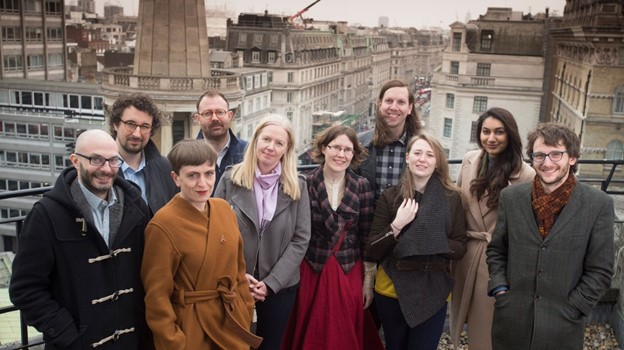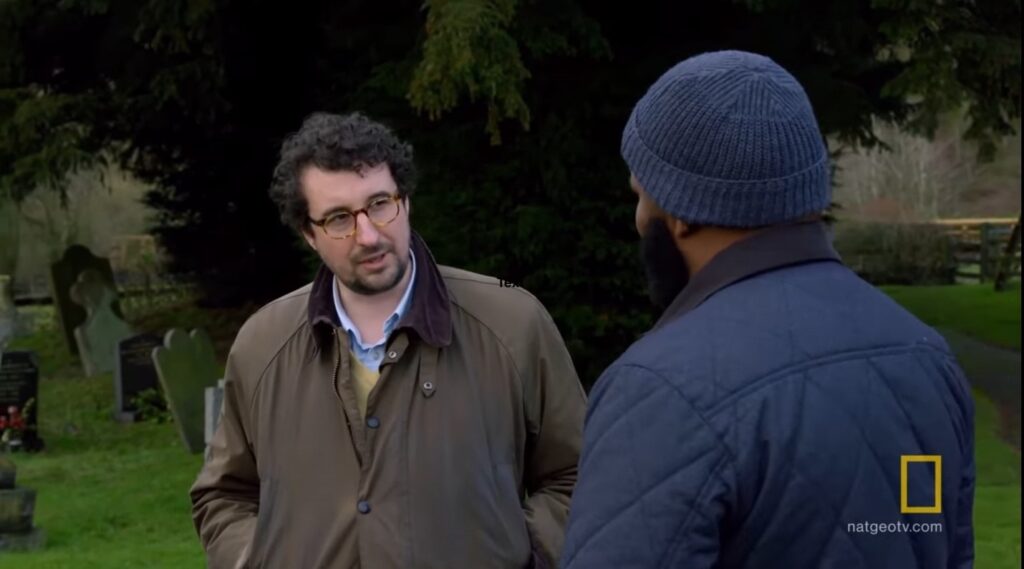Land is a fundamental part of life on Earth, but the way we interact with it inspires complex conversations across disciplines. Thinkers across the ages have grappled with the question of how we ‘own’ land: how fencing off a section of land and calling it ‘ours’ leads to broad questions of identity, nationalism, and more.
Dr Dafydd Daniel of the School of Divinity is exploring how these debates come to life in modern Scotland through his new project Owning the Future of Scot-Land: Historical and Contemporary Perspectives on Scottish Identity and the Value(s) of Land. Supported by grant funding from the University of St Andrews’ Scotland’s Future Series, the project looks to involve academics across disciplines, as well as non-academic stakeholders in land and land use, to bring debates about Scottish land from across time and subject into conversation with one another. In doing this, Daniel hopes that new insights will emerge from the project, providing guidance for future relationships with land in Scotland.

Daniel (second to left) and the BBC’s New Generation Thinkers 2018 cohort.
This notion of the past influencing the future grew out of Daniel’s research interests in the Enlightenment era, and the importance of Christianity and religious thought during this period. This was the focus of his work when he was chosen to participate in the New Generation Thinkers scheme in 2018: a highly selective program run by BBC Radio 3 and the Arts and Humanities Research Council, bringing the work of groundbreaking arts and humanities scholars to public audiences through developing programmes for the BBC. There, he explored the dynamics of science and religion through topics such as Isaac Newton’s interest in alchemy, and discussed how the theological aspects of Enlightenment thought are often overlooked.
Another topic of interest to Daniel is the notion of rights versus duties, and how the concept of individual ‘rights’ tends to overshadow the concept of collective ‘duties.’ His exploration of these themes on the BBC attracted interest from the Scottish Land Commission, who invited Daniel to speak on a panel in 2021 about new models of land governance. From here, Owning the Future of Scot-Land began to develop.
Daniel speaking on ‘why land governance?’ during the Scottish Land Commission’s ‘Land governance – time for new models?’ panel.
Unique to this interdisciplinary project is its practical, theoretical, and historical views on Scottish land ownership. The practical side, represented by the Schools of Geography and Sustainable Development and Earth and Environmental Sciences, explores dynamics of population studies and biodiversity. On the theoretical side, the Schools of International Relations and Management integrate political theories of democracy and activity on land, asking questions of how they shape and underpin how we approach land – and if there are new models for thinking about land ownership. Finally, the Schools of History and Divinity are involved to examine historical debates about Scotland, and how they relate to the current day. As these three dimensions – the practical, theoretical, and historical – are brought into conversation, participants may find that they echo established past debates: providing guidance for the future.
The project also involves contemporary stakeholders, usually with a more immediate perspective, such as business owners, local government, heritage organisations, and charities. It seeks to examine if their main concerns align with the work of academics across disciplines, and if these concerns have influence on academic research – and vice versa.
Why the Enlightenment?
Many aspects of modern society can be directly related to Enlightenment philosophies. The Enlightenment was a time of change in the Western world, as new ideas of politics, who people are, and what it means to be part of society emerged through scientific development and political uprisings, such as the American and French Revolutions. And underlying all these movements, Daniel argues, was a shared theological sense about the purpose of land, creation, and human identity in the world.
Relevant to Owning the Future of Scot-Land, emerging schools of thought during the Enlightenment provided different perspectives on land ownership that would inform the ways it is managed today. For instance, while liberalism foregrounds the individual person in questions of land ownership, civic humanism holds that land has special moral and political status. Given the shared theological basis of these ideas, they can both be applied to understanding Scottish land ownership in the current day.
Why land?
Land is significant to the identity of Scotland, influencing culture, patriotism, and nationalism.
Another key aspect of the project is investigating how Scottish identity affects how land is managed, historically and in contemporary debates around independence. Scotland is unique in that fewer than 500 people own 50% of private land in Scotland. This concentrated landownership, especially in the case of foreign owners, affects Scottish identity and connection to land when Scottish people are limited to Scottish land. Evidently, identity affects land use, and land use affects identity.
Future impact
Daniel hopes that Owning the Future of Scot-Land can help academics and stakeholders recognize the values they bring to land, and how they guide their use of land. He intends for the project to consist of an initial conference, continuous forums, and discussions between all the involved groups, and a collective publication at the end of the project.

A still of Daniel and presenter Sal Masekela from National Geographic Channel’s The Story of God with Morgan Freeman, in which guests discuss the relevance of history and religion in understandings of the world today.
Owning the Future of Scot-Land is a combination of lessons learned from Daniel’s past experiences, and goals for the future. A major takeaway from his work during New Generation Thinkers was the ability of historical and religious ideas to help understand contemporary debates. Conversely, he found that contemporary discussions can uncover the ways people think about Scottish history. Looking forward, the project offers an opportunity for Daniel to further pursuing his interest in interdisciplinary approaches: something he notes is supported at St Andrews. He believes that to genuinely think about Scotland’s future, it is necessary to think about Scotland’s past. And to effectively think about both, a diversity of perspectives is essential – a quality Owning the Future of Scot-Land is well-placed to provide.
